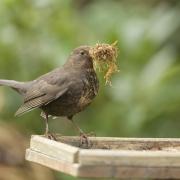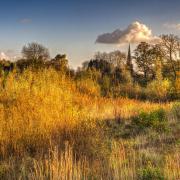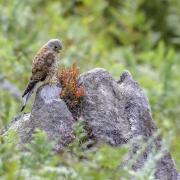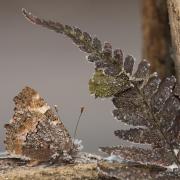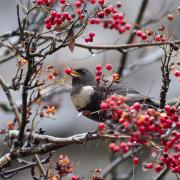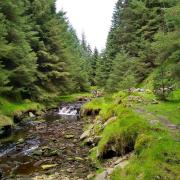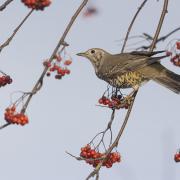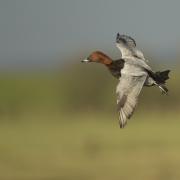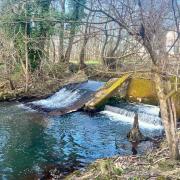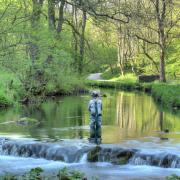Familiar as the emblem of the RSPB, Derbyshire Life looks at the Avocet

Avocets were fairly common in Britain a few hundred years ago and seemed to have a southerly and easterly bias in the country. Fen and marsh drainage to make way for agricultural land, alongside the voracious habit of shooting for the pot and taxidermy, saw their numbers decline until they became extinct in 1840.
It wasn’t expected or planned but the Second World War had a number of positive aspects that favoured wildlife in Britain. One such aspect was that many beaches were closed to the public in areas where it was thought that the Germans might invade. These defences allowed many beach specialists such as little terns to do well. With hindsight this could have been predicted but the return of the avocet to a beach in East Anglia in 1947 was a complete surprise and what a welcome one it was. The fledgling RSPB became involved in protecting the site because this was an era of serious egg collecting and it would have been an unmitigated disaster if these colonising avocets were literally forced back to extinction in their first few years.
Those early years saw a slow spread along the east coast around East Anglia and many reserves like Minsmere managed their water levels carefully to try to provide the precise requirements that avocets need.
Avocets feed in shallow water on invertebrates using that most amazing bill. If the water is clear they proceed along and pick small invertebrates from the water using their eyesight. However, if the water is muddy they wade through it and swish their bill sideways picking them up by touch. This method of feeding is incredibly beautiful and always reminds me of a ballet dancer, precision and elegance rolled into one.

Many of the areas that they initially colonised were coastal and had brackish lagoons which seemed essential. The birds slowly built their population up and carried on south and west, often spending their winters in Cornwall.
From this point it almost seems as if the avocets decided that a new strategy was necessary and they started to look inland and in a more northerly direction. Yorkshire had its first breeding avocets 24 years ago and they now breed in all three Ridings. Lincolnshire has established colonies and even Cheshire and Lancashire now see breeding avocets annually. Nottinghamshire has them breeding in the Idle Valley, not a million miles from Derbyshire.
So it’s not unreasonable to expect to see avocets in Derbyshire every year as they breed in virtually all the counties surrounding us. The key seems to be that at present none of our wetland reserves are suitable. In other areas where it was thought avocets might colonise, habitat management created shallow islands to provide sanctuary for breeding birds and shallow water to feed in.
Avocets are one of the most graceful birds that can be watched in Britain. However, they are not all sweetness and light. They are birds with conflicting emotions! During the breeding season they can be very aggressive to other birds, including other avocets. Saying this though, there is something charming about avocets duelling. The curved rapier-like bill seems to suggest fencing at its very best. An avocet can be feeding gracefully in the water one minute but then if it suspects that another avocet has designs on its nest or mate the head lowers and it charges forward, running or flying at its opponent. If the birds are evenly matched a stunning duel results.

I have watched breeding avocets in Britain and Holland and their least endearing feature has to be their voice. They are loud and never seem to know when to shut up. The Dutch call the avocet ‘Kluit’ which resembles the sound they make.
Avocets are here in Derbyshire but not yet breeding. This emblem of our largest conservation organisation certainly has a great back story, and with a bit of imagination and luck we could witness the duels of competing avocets in Derbyshire at sometime in the near future. I certainly hope so.





